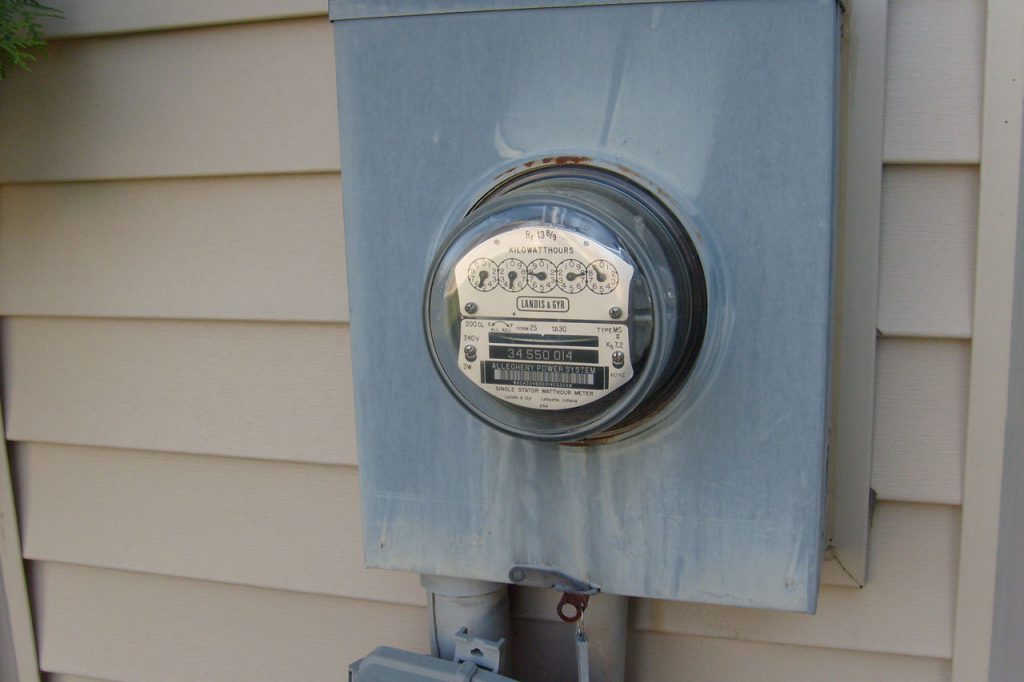Utility Disconnection Moratorium Extended to November
But starting Nov. 1, your water could be shut off.
State regulators have decided to again extend a temporary moratorium on utility shutoffs for residential customers during the COVID-19 crisis until Nov. 1.
The decision means utilities could resume issuing disconnection notices to shut off water service on that date, but they must file plans with the Public Service Commission and those plans must be approved before notices can be sent.
The state’s standard winter moratorium takes effect Nov. 1, preventing electric and gas disconnections through April 15. Water service is not included in the winter moratorium. Under current law, electric and gas utilities must file a plan to obtain approval to disconnect anyone during the winter months, said Rebecca Cameron Valcq, chair of the Public Service Commission.
Last month, the Public Service Commission voted 2 to 1 to extend the temporary moratorium until Oct. 1. The moratorium is part of an order the commission issued in March that prevented utilities from disconnecting water, electricity and heat for customers who couldn’t pay their utility bills during the COVID-19 pandemic.
At least 47 water utilities filed plans to disconnect service for around 10,000 customers if the moratorium were lifted Oct. 1, according to an August survey by the commission. Utilities must now update or file their disconnection plans with the commission by Oct. 10. Disconnection notices could be sent to customers beginning Nov. 1, and the earliest someone’s water could be shut off is Nov. 15.
“I think it would be good for us to see the, at least, initial plans,” said Commissioner Tyler Huebner. “If there’s certain aspects of those that we feel needs to be addressed, then understanding the specifics of what they’re asking to do and what types of customers are involved will help us understand sort of a framework.”
Commissioner Ellen Nowak was once again the lone commissioner to oppose the extension.
“I think we should just continue to be more targeted and hopefully can provide some assistance to folks in water who need assistance, especially if they have COVID or are waiting for unemployment benefits in the future,” said Nowak. “I think there’s a way to do it.”
The commission is temporarily requiring utilities to postpone shutting off service to those who have contracted coronavirus for at least 21 days and possibly an additional 21 days if they remain under quarantine.
The commission and the Wisconsin Utilities Association have urged people to contact their utilities to set up deferred payment plans or seek energy assistance prior to the end of the moratorium.
“We know the commission has a tough balancing act with trying to help people at this time while also being concerned about the size of the balances that still need to be paid,” said Tom Content, executive director of the Citizens Utility Board.
Content said it’s incumbent on Congress to assist ratepayers by providing more funding for rental assistance and utility assistance. In the meeting, Around $60 million in energy assistance funding in Wisconsin for fiscal year 2020 is nearly depleted, according to Valcq and a commission spokesperson.
As of August, more than half of those bills — 57 percent — were more than 90 days overdue compared to 45 percent in August 2019.
The August survey of 154 electric, gas and water utilities that submitted data found more than half planned to disconnect 54,051 residential customers if the moratorium on shutoffs was lifted. The figure was down from roughly 71,000 customers who were slated for disconnection, according to a July survey of 187 utilities.
Utilities have argued an extension would make it more likely customers would fall further behind on their bills, which could result in utilities passing on those losses to all ratepayers. The commission is asking utilities to submit plans by Friday, Jan. 15 on how they plan to deal with past-due balances.
Listen to the WPR report here.
State Regulators Rule Utilities May Resume Issuing Notices For Water Shutoffs On Nov. 1 was originally published by Wisconsin Public Radio.
More about the Coronavirus Pandemic
- Governors Tony Evers, JB Pritzker, Tim Walz, and Gretchen Whitmer Issue a Joint Statement Concerning Reports that Donald Trump Gave Russian Dictator Putin American COVID-19 Supplies - Gov. Tony Evers - Oct 11th, 2024
- MHD Release: Milwaukee Health Department Launches COVID-19 Wastewater Testing Dashboard - City of Milwaukee Health Department - Jan 23rd, 2024
- Milwaukee County Announces New Policies Related to COVID-19 Pandemic - David Crowley - May 9th, 2023
- DHS Details End of Emergency COVID-19 Response - Wisconsin Department of Health Services - Apr 26th, 2023
- Milwaukee Health Department Announces Upcoming Changes to COVID-19 Services - City of Milwaukee Health Department - Mar 17th, 2023
- Fitzgerald Applauds Passage of COVID-19 Origin Act - U.S. Rep. Scott Fitzgerald - Mar 10th, 2023
- DHS Expands Free COVID-19 Testing Program - Wisconsin Department of Health Services - Feb 10th, 2023
- MKE County: COVID-19 Hospitalizations Rising - Graham Kilmer - Jan 16th, 2023
- Not Enough Getting Bivalent Booster Shots, State Health Officials Warn - Gaby Vinick - Dec 26th, 2022
- Nearly All Wisconsinites Age 6 Months and Older Now Eligible for Updated COVID-19 Vaccine - Wisconsin Department of Health Services - Dec 15th, 2022
Read more about Coronavirus Pandemic here






















